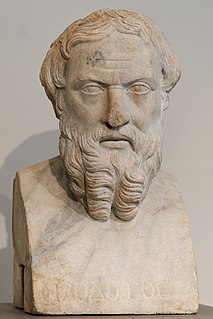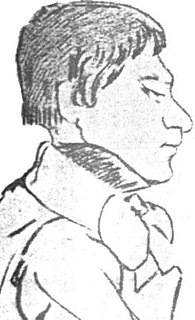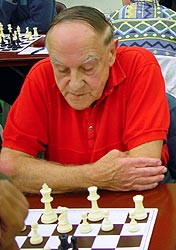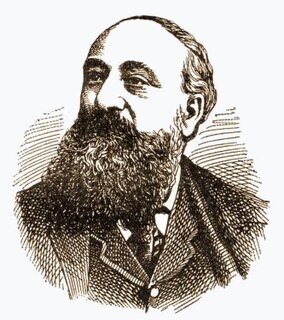| G. H. Diggle | |
|---|---|
| Full name | Geoffrey Harber Diggle |
| Country | |
| Born | 6 December 1902 Moulton, Lincolnshire, England |
| Died | 13 February 1993 (aged 90) Brighton, England |
Geoffrey Harber Diggle (6 December 1902 – 13 February 1993) [1] was a British chess player and writer. Diggle contributed articles to the British Chess Magazine (BCM) from 1933 to 1981, and to the British Chess Federation's publications Newsflash and Chess Moves from 1974 to 1992. [1] C.H.O'D. Alexander called Diggle "one of the best writers on chess that I know". [2] In his A Book of Chess, Alexander reproduced in toto Diggle's account, first published in the November and December 1943 BCM, of the de facto 1843 world championship match between Staunton and St. Amant. [3]

Great Britain is an island in the North Atlantic Ocean off the northwest coast of continental Europe. With an area of 209,331 km2 (80,823 sq mi), it is the largest of the British Isles, the largest European island, and the ninth-largest island in the world. In 2011, Great Britain had a population of about 61 million people, making it the world's third-most populous island after Java in Indonesia and Honshu in Japan. The island of Ireland is situated to the west of Great Britain, and together these islands, along with over 1,000 smaller surrounding islands, form the British Isles archipelago.

Chess is a two-player strategy board game played on a chessboard, a checkered gameboard with 64 squares arranged in an 8×8 grid. The game is played by millions of people worldwide. Chess is believed to be derived from the Indian game chaturanga some time before the 7th century. Chaturanga is also the likely ancestor of the Eastern strategy games xiangqi, janggi, and shogi. Chess reached Europe by the 9th century, due to the Umayyad conquest of Hispania. The pieces assumed their current powers in Spain in the late 15th century with the introduction of "Mad Queen Chess"; the modern rules were standardized in the 19th century.

British Chess Magazine is the world's oldest chess journal in continuous publication. First published in January 1881, it has appeared at monthly intervals ever since. It is frequently known in the chess world as BCM.
After Diggle told Alexander of a game he had lost in seven moves (1.e4 e5 2.Nc3 Nf6 3.Bc4 Nxe4 4.Bxf7+?! Kxf7 5.Nxe4 Nc6 6.Qf3+ Kg8?? 7.Ng5! 1-0 Davids-Diggle, London Banks League 1949), Alexander affectionately christened Diggle "the Badmaster", a facetious counterpoint to the more familiar title Grandmaster. Diggle later adopted the sobriquet as a pseudonym, writing a series of articles in Newsflash under that name between 1974 and 1986. [1] [4]
Grandmaster (GM) is a title awarded to chess players by the world chess organization FIDE. Apart from World Champion, Grandmaster is the highest title a chess player can attain.
A pseudonym or alias is a name that a person or group assumes for a particular purpose, which can differ from their first or true name (orthonym).
Chess historian Edward Winter wrote the following in his remembrance of Diggle in CHESS magazine: [1]

A historian is a person who studies and writes about the past, and is regarded as an authority on it. Historians are concerned with the continuous, methodical narrative and research of past events as relating to the human race; as well as the study of all history in time. If the individual is concerned with events preceding written history, the individual is a historian of prehistory. Some historians are recognized by publications or training and experience. "Historian" became a professional occupation in the late nineteenth century as research universities were emerging in Germany and elsewhere.
Edward Winter is an English chess journalist, archivist, historian, collector and author. Very little information about him is publicly available. His correspondence with other chess historians as well as prefaces of his books suggest he lives in Geneva, Switzerland. He writes a regular column on chess history, Chess Notes, and is also a regular columnist for ChessBase.
Specializing in nineteenth-century chess history (particularly the Staunton period), he brought the old masters to life with rare wit and shrewdness. These qualities also permeated his accounts of the idiosyncratic doings and sayings of club "characters", such as the elderly player "who fumbled his way to perdition at reasonable speed until he was a queen and two minor pieces to the bad, after which he discovered that 'every move demanded the nicest calculation'", or "the Lincoln bottom board of 1922, who complained that he had 'lost his queen about the third move and couldn’t seem to get going after that'." A former county champion, G.H.D. was charmingly self-deprecatory in his reminiscences, as when he had a game adjudicated by Tartakower: "The Great Master, having been fetched, sat down at the board very simply and unaffectedly, and drank in through his spectacles the fruits (and probably the whole deplorable history) of the Badmaster’s afternoon strategy."
Little escaped G.H.D.'s eye, even towards the end. Modestly adapting Oscar Wilde, he claimed to have "nothing to declare but his longevity", simply adding that he had "mingled from time to time with three generations of eminent players ranging from Isidor Gunsberg to Nigel Short, and rambled extensively round the highways and byways of provincial chess". He was one of the game's most stylish chroniclers.
In 1984 and 1987, Chess Notes published two collections of Diggle's Newsflash articles as Chess Characters: Reminiscences of a Badmaster and Chess Characters: Reminiscences of a Badmaster, Volume II. [5] [6] [7]










